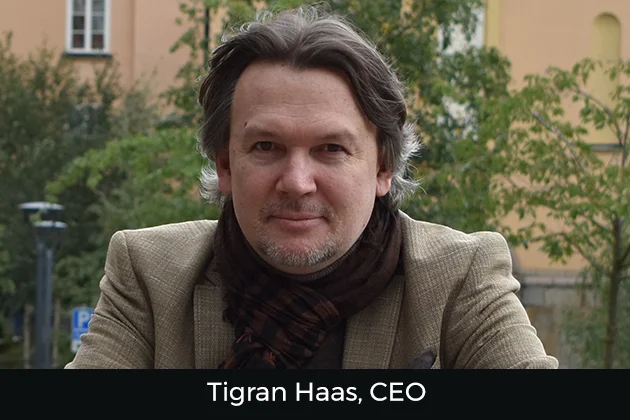The purpose of the Centre for the Future of Places (CFP) is to use the focus on public space to merge the knowledge from different urban development silos and to create links among the experts in them in order to create a holistic understanding of the city. It was established to promote sustainable urban development by shifting the urban discourse from objects to places. “We envision a networked community of leaders actively working across sectors, frontiers, and disciplines to build a more just, sustainable, and prosperous world.”
Established to Promote Sustainable Urban Development by Shifting the Urban Discourse from Objects to Places
The ambition is to enhance an already ongoing paradigm shift where the focus in urbanism studies (in disciplines of urban planning and urban design) is shifting from objects to places. It came about as an amalgamation of Future of Places Conferences, Urban Form and Human Behavior Research Lab and International Network in Urbanism. The CFP investigates the challenges faced in various regions, metropolitan cities, towns and neighborhoods such as contemporary and future urban conditions, development, planning, design and the urban form and placemaking processes of the city, to develop more sustainable, resilient, livable, just and inclusive urbanism. It focuses on the urgent topic of public space, its role as an essential urban frame-work, its degradation under current global urbanization processes and the reforms that will be needed to achieve the public space goals of a “New Urban Agenda” as defined in 2016 by United Nations member states.
The CFP provides a link between the research resources at the KTH School of Architecture and the Built Environment and the wider professional practice community to modernize the role of urban planning and designing within broader interdisciplinary fields, and their impacts upon human environments and social life. As public communication and dialogue occur through research, education, social media, symposia, roundtables, colloquiums, debates, conferences, exhibitions, and publications, the CFP ensures that its output complies with the most stringent standards of academic scholarship as well as ensuring practical relevance and human benefit. It aims to raise professional and public appreciation towards urbanism and its impact on the city and the responsibility for creating a better life for all citizens.
CFP is also involved in dynamic outreach activities with other universities and relevant organizations. Through these activities, the company forms interesting projects to rethink and improve the conventions of planning and design theory and practice. CFP aspires to make a tangible difference in the lives of human beings through the physical environment of the cities.
The CFP has the largest international cross-disciplinary network in the world of academia, where the disciplines included are architecture, human geography, Urban Planning, City Planning and Urban Design, Environmental Planning, Environmental Psychology, Urban Social Geography, Urban Sociology and provides services such as world-class conferences, symposiums, talks, seminars, expert advice, education, books, research reports, and consulting on best-case projects.
“We are also firmly committed to attaining and sustaining the highest level of quality in our research and associated programs and projects, as well as push for internationalization on all levels,”…Since its initiation in September 2016, CFP’s staff and researchers have contributed to more than 150 new books, academic publications, book reviews and research reports and has pioneered a plethora of new systemic solutions. Moreover, Academic Conversations – The Centre for the Future of Places Event Dictionary and the first-ever female academic series was established with 20 international scholars coming with the total number of events numbering over 200.
The main issue is that cities are getting more complex and the challenges are rising on a daily basis with multiple converging crises that seek answers for new theories, tools and approaches. The CFP will try to answer these calls as it goes into the next period. The focus will be on the critical issue of rising smart and new experimental cities and issue of autonomous mobility, but the first three year’s theme is of cities for all and who owns the city in the backdrop. Reflecting the interdisciplinary nature of CFP’s work, more than 220 presentations, talks and interviews have been given over the past one and a half years by the company’s researchers at a range of institutions and academic environments. Through all the research projects in the four thematic fields – from sustainable urbanism, urban form and human behaviour, to urban transformations, housing and urban spaces, all focusing on public spaces, CFP’s staff have established strong relationships with other international research nodes and centres of learning and research within the School.
OVER THE NEXT 12 MONTHS, THE COMPANY IS PLANNING TO DEVELOP A NEW BIENNIAL RESEARCH THEME THAT WILL FOCUS ON LIVABLE, VIABLE AND INTELLIGENT SMART CITIES AND PUBLIC REALM FUTURES.
CFP has been giving expert advice to UN-Habitat, Abu Dhabi Urban Planning Council, Aseer Regional Development Authority (ASDA), City authorities in Vietnam, South Africa, Venezuela and other places as well as Universities such as University of Chicago, Massachusetts Institute of Technology, Harvard University, TU Vienna, ETH in Zurich, UCL Bartlett London and organizations such as Project for Public Spaces, PPS, Gehl Architects and others.
Over the next 12 months, the company is planning to develop a new biennial research theme that will focus on Livable, Viable and Intelligent Smart Cities and Public Realm Futures, which will further expand the CFP’s research program within the four thematic groups and strengthen the international ties and upcoming work with UCL Bartlett in London and LCAU at MIT in Boston.










